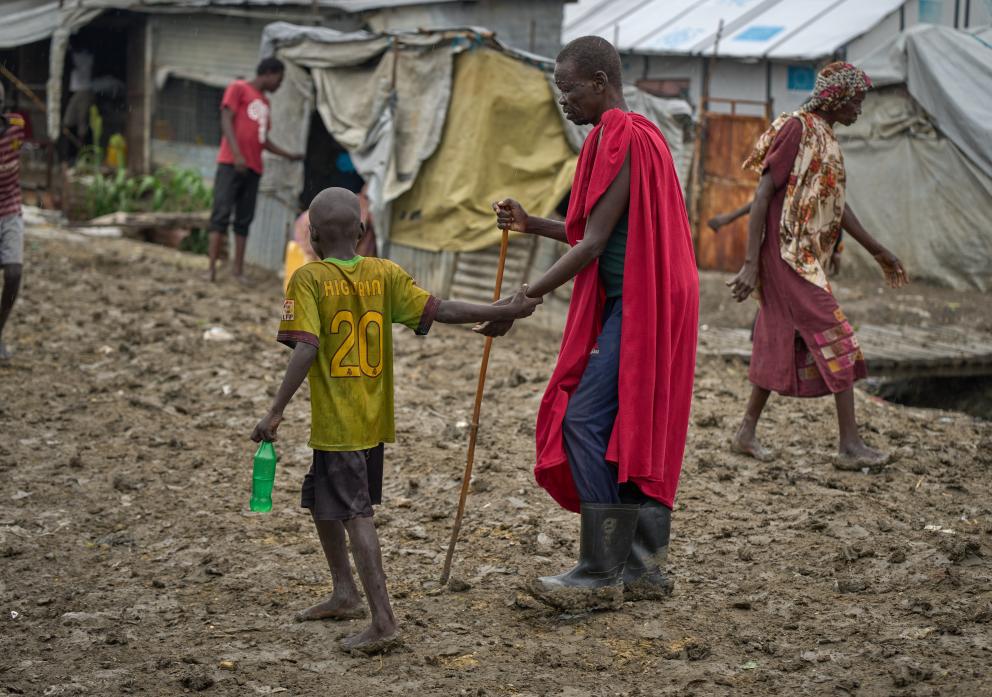The forum, organised by the Evangelical Lutheran Church of Tanzania, the World Council of Churches (WCC) Ecumenical Disability Advocacy Network and the Evangelical Lutheran Mission of Finland, an agency of the Evangelical Lutheran Church of Finland, featured a series of talks by religious leaders, doctors and organisations working to advance the rights of vulnerable women and girls.
Bishop Dr Frederick Onael Siew, former Patriarch of the Evangelical Lutheran Church of Tanzania, said it was important that women and young people, especially people with disabilities, were aware of the opportunities that could impact their lives, the services available to them and their right to bodily autonomy.
“The sexual health of women and girls with disabilities should therefore be included in the public debate. It should be emphasised that societal norms, the sexual and reproductive health and rights, and bodily integrity of women and young people with disabilities require special consideration,” Xu said.
According to the bishop, this conclusion was drawn from the Church’s work with the Tanzania Federation of Disabled Persons’ Organizations and the Serian Lutheran Hospital, which are establishing accessible sexual and reproductive health services.
During the evening meeting, partners exchanged views on the human rights of women and girls, how Churches can support in facilitating access to services for women and girls who have experienced female genital mutilation and other violence, including women with disabilities, and promoting positive norms and values in the community.
In addition to little access to services for people with disabilities, societal norms around disability and gender normalize the violence faced by girls and women with disabilities in their communities, the bishop said.
“The focus should be on the benefits of promoting sexual and reproductive health and rights for society as a whole, and women and girls with disabilities in particular,” he said.
In Tanzania, the WCC Ecumenical Disability Advocacy Network has been helping Serian Lutheran Hospital make the sexual and reproductive health services it provides, primarily to members of the Maasai indigenous community, inclusive of people with disabilities.
“Girls with disabilities have been excluded from access to sexual and reproductive health, despite having the same rights and needs as their peers and being sexually active. [services] Remy Munzaba, project manager at Serian Hospital, said:
Teresa Juhaninmaki, regional director for the East Africa region of the Evangelical Lutheran Church of Finland, called for comprehensive action to ensure that all girls who are pregnant, have experienced sexual violence or need sexual and reproductive health services can be admitted to hospital, regardless of their abilities or faith.
“Religious leaders hold the key to changing the social norms and values to make this happen, and they also have the broad service delivery base to put this into practice on a daily basis,” Juhaninmaki said. “I congratulate the Evangelical Lutheran Church of Tanzania and Serian Hospital for taking the lead in this area in Tanzania, and hope this is just the first step towards a truly equal society.”
Recent reports have emerged of women with disabilities being forcibly and clandestinely sterilized in Tanzania, with the procedures being carried out under the guise of legitimate medical treatment.
“It is our right to love and be loved. We also have the right to have a family. Don’t sterilize us,” Happiness Koisianga, secretary general of the Tanzania Federation of Disabled Women in Arusha, told the forum.
Evangelical Lutheran Church of Tanzania (ELCT)
Ecumenical Disability Advocacy Network (EDAN)

